Running my fingers along the twisted scar on my abdomen I wince at the tissue’s thickness and what it represents.
The baby cries impatiently as I fumble for my glasses. I haven’t slept more than a three-hour clip in four months. For a moment I flopped back down in bed and pulled the blanket over my head. What if I just refused to get up?
Less than six months ago. I felt that close to giving up. Every. Single. Day.
I tried to prepare for my second child. Took all the preventative measures to avoid or minimise a second round of postnatal depression. The emergency caesarian was not part of my plan. Nor the reflux issues and sleeplessness that followed.
I retreated from my social networks. I couldn't taste food. I felt equal parts overwhelmingly busy and bored. My interests faded. The negative self-talk had a freaking field day on my self-esteem.
{There were several exceptional humans who helped with my responsibilities, allowed me to nap, brought me coffee, let me cry, DM'ed me the best midwife advice. Thank you, my village.}
My husband was also sleep-deprived and stressed beyond recognition. His usual positivity gave way to worry due to uncertainty at work. Lucky guy, he bounced from one stressful environment to another. It took every last breath in his tank to make sure I wasn't going to completely lose my marbles. We barely saw one another, he barely saw the girls.
This too shall pass, they say. But when you’re in the middle of it, the end alludes you.
When my Grandmother passed away in New York and I couldn’t get home for the funeral, it was the closest to a nervous breakdown I’ve ever felt.
It was time for the BIG question. What’s it all for?
That’s when we flipped the Goddamn table on our life.
Matt got his Commercial and Residential builders licenses. With this massive goal achieved, it was like someone flung open a window in our house full of closed doors. As a family, all four of us managed to squeeze out of that little escape hatch and bust into the sunlight.
1. By Being a Good Person
Matt worked his ass off for fifteen years in the construction industry. He made great relationships with subcontractors and built a reputation for himself as a fair, respectful and honest person. Don't burn bridges unless they're toxic, stand up for what's right, people will remember you for it. Protect your reputation.
2. Making Time
There's never enough 'time.' Never for anyone, ever. Throw out that excuse. Matt pursued a life-long dream of getting his builders license even though the timing was downright shitty after having our second baby. I supported him and complained every step of the way. Two days a week I only saw him during night feeds. We got through it and I wouldn't change a thing.
3. Sacrificing Something Big
We sold our dream home. At the end of the day, it’s sticks and bricks. Better that we have more autonomy, more time as a family. It was an emotional rollercoaster selling in today's market. But we've done it! Cashed-up, and cashed-in, ready to start our business. Something had to give and I’m glad it was the house and not one of our brains.
4. Creating The Scariest Thing We Could Think Of
We started our own construction company. Everyone Matt speaks to about starting a business says the same thing, “Starting my own business is the best thing I’ve ever done, my only regret is not doing it sooner.” It takes gonads. It takes teamwork. It takes trust. Our chips are in and we are high-fiving all the way to the starting line.
Matt has been home with the kids and I for the last few months. We’ve been tested with two deaths in the family, my depression, the four of us getting sick for a month, a baby who didn’t sleep through the night, selling our home in a declining market….I’m not sure how much more pressure you can place on a partnership.
The experience has absolutely galvanised us.
We made all the difficult decisions as a team. We trusted one another. We supported each other. We snuggled our babies and took turns sleeping-in (he only had a few turns).
My mental health is the best it’s been in years if not decades. THIS is what it's all about.
I know if all goes to plan, life will get busy again. Matt will be working long hours and the pressure will ramp up. The difference is that this time it's on our own terms. The risks are greater but so are the potential rewards.
Life is too short to stay on a socially constructed path. There are other ways to do things. Take a risk, get off the grid, travel, love, create. It’s probably going to involve a trade or a sacrifice but what’s more important, being safe or living?
“Life is all about not knowing, and then doing something anyway.” Mark Manson (from Screw Finding your Passion).
Please take care of your family, heads, and hearts, my friends.
What’s the biggest risk you ever took? What did you learn from it?
This morning, curled up in a ball on the couch, hoodie pulled over my face, I cried like a teenager while my husband left for work. The baby, who decided to wake for the day at 5:00 am, gurgled in her swing while Morning Show hosts prattled on about celebrity couples. I didn’t even know J.Lo had another new boyfriend. Can’t say I’m surprised.
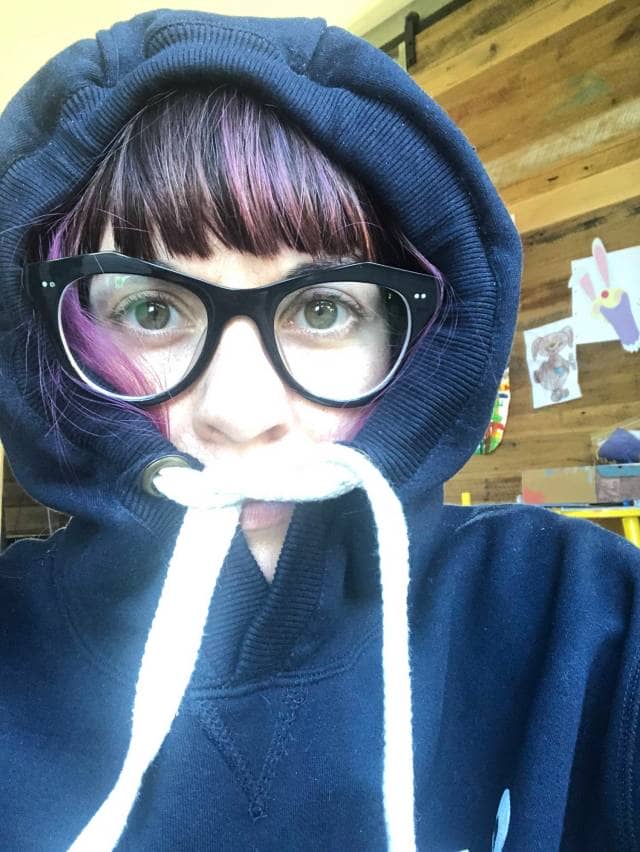
Depressed people tend to focus on the negatives. Like how today there’s no kinder, no creche (at the gym), daylight savings just ended, and my kids didn’t get the memo.
Sometimes even our most skilfully built villages aren’t available when you’re a transplant. I can’t call my Mother to come over for an hour so I can go back to bed because I’m on the other side of the world. She would probably remind me that it was my choice to move to Australia (as if it were a choice). My Mother in law has already done some hard yards for us over the last few months. So, here we are.
My makeshift village is a skeleton crew after the Easter long weekend. I have (many, amazing) friends but I wouldn’t dream of calling them on a day when my main complaint is, "I feel blah," they have their own kids on school holidays and don’t need to add me to their responsibilities list.
I tell myself, "Get it together, you should be better by now, Imogen is six months old." The dreaded first year is half over. Well....perhaps the truth is I didn’t completely escape PND this round. Maybe for different reasons, and at a lesser intensity, it’s still the same familiar beast. We had a support network in place but we also had silent reflux. Same, same, but different.
In the middle of the night, the tiredness actually makes me feel old and worn out. I bleed motivation for projects that typically fire me up and make me happy. The question meant to kill all creativity creeps into my mind, “What’s the point?”
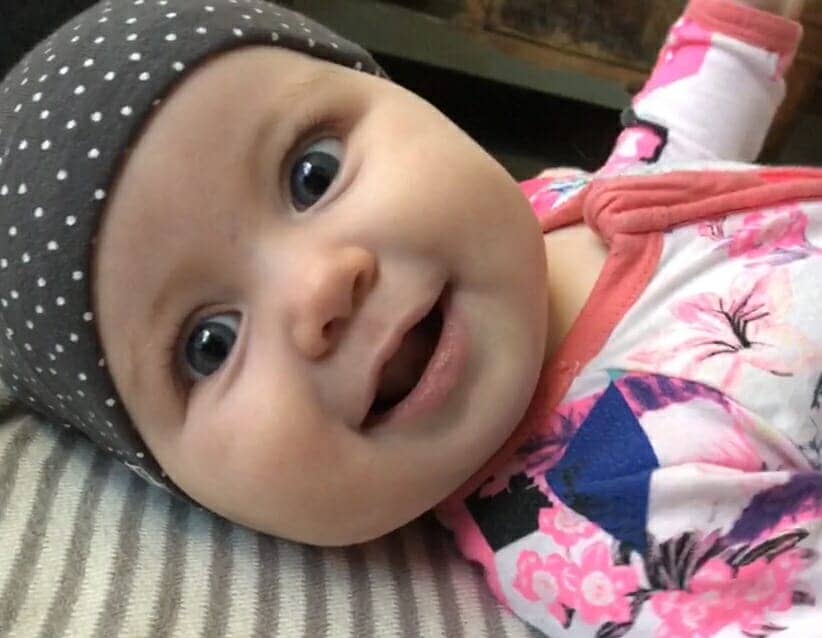
When I look at the baby through my hoodie hole, she smiles at me. Big. I don’t want to be cheered up but I can’t help it. This is why I don’t run away and why I don’t quit.
I decided to drop any and all expectations of myself today. It actually helped a little.
Sweeping the floors I started writing sentences in my head then gave myself permission to stop bloody sweeping and record a few words while the kids were entertained. If I didn’t I would lose the story like I’ve lost countless others to the newborn fog.
Writing, creating, and sharing it all, is the thing that will pull me through.
When Lavinia told me she had enough TV, I decided she deserves the playground for being such a legend (I flipping hate playgrounds). And since I haven’t left the house or yard in six days, maybe I needed a walk as well.
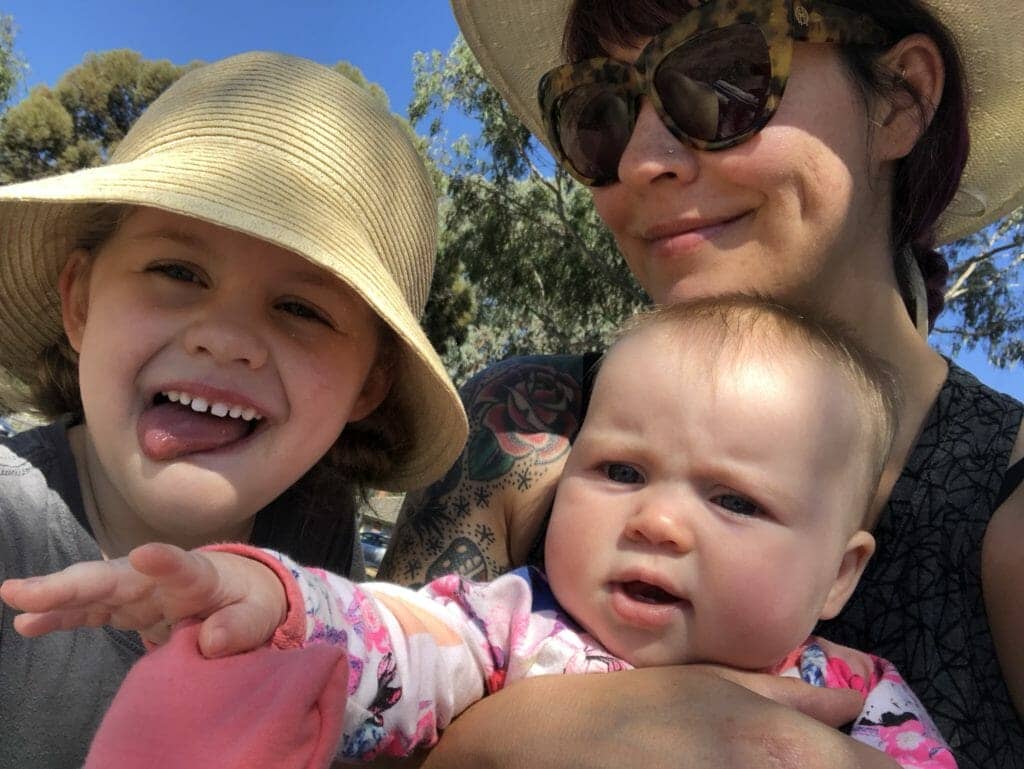
It took a few hours because we didn’t rush. (I’m not exaggerating, it can take hours between bottles, meals, nappy changes, outfit changes, sunscreen, hats, and shoes to get two kids out of the house- just in case you didn’t know.)
Mama got a treat too. I stuffed the laptop in the pram in the hopes of having a few moments of baby-nap. You're reading this so, you know I scored!
Depression sucks a lot of life away but maybe if I take these tiny opportunities to shine things up, it could end up a much better day than it started out to be.
contains sponsored link
Social Media is not real. Or maybe it's a half-truth like a little white lie. Arguably it's more like a one-hundreth of the truth.
The images that stop your thumb represent only the best frames of our lives, edited, curated and filtered for mass consumption.
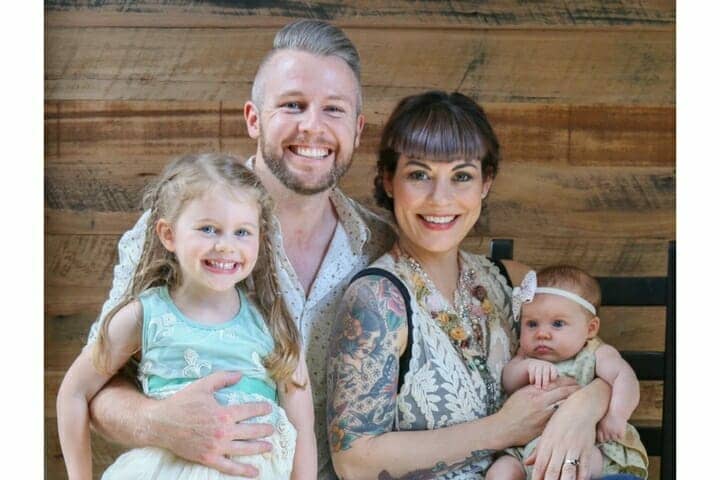
I try to be as authentic as possible with Kangaroo Spotting but even I find myself forming an online ‘brand,' depending on the platform of course. On Instagram, I focus more on artwork and creativity because it lends itself to a visual aesthetic. On Facebook, it's parenting so that we can have discussions. The audiences in both places are different. I know because I look at analytics.
One of my close friends dropped in the other week when she was in the neighborhood. And because she’s so lovely, she apologised for not checking in on me more (which she shouldn’t have done because she’s one of the few people I’ve seen more than once since Imogen was born). She told me that social media told her I seemed fine and in the same breath she chastised herself because "that stuff isn’t real."
Her throwaway comment got me thinking. And until I sat down to write this, I don't think I realised just how much I curate my own social media feeds, even though I pride myself on writing honestly about personal topics.
Back to my friend who simply wanted to see for herself…I had to wonder. Does everyone else think I’m fine?
Fine. It's a 'four letter word' in my opinion. My high school English teacher called it a wimpy word. It's just another, vague, crappy description that could mean anything and nothing at the same time.

Right now as I'm sitting here writing for the first time in forever, my four-year-old is screaming for me to bring her books to read on the toilet and I fully screamed back at her like a person possessed. My voice had a nasty edge that would make me ashamed if anyone else heard.
Five minutes to tap while the baby sleeps, it's all I wanted. Just enough to open the value on my pent up creativity. It's been bottling up inside me like hot steam. I have trouble falling back to sleep after night feeds because I think of topics and sentences that I'm too tired to write down during daylight.
I’m lucky the baby and I are both physically healthy, she’s eating and feeding well but it’s still a struggle (and I am too tired to fight the battle.) Shout out to the Mama's who deal with colic, reflux, latching, sleep-issues ect. I don’t know how you do it. Even without any of those problems my brain chemistry is thrown off and I can slip into dark moods.
And I'm even luckier that with this postpartum period, I don't linger in those shadows for very long. They usually disappear when I have rest, help, or if I manage to accomplish something other than keeping the kids alive for the day.
Guilt floods my brain now as I hear my sweet Lavinia reading a story to her baby sister whom she woke with her (our) yelling. The little ten-week-old, giggling, makes me realize that I haven't done any damage to either of my girls.
The moral of the story is don't believe everything you see.
If you're stressed and need some advice check out this link for some profesh advice.
Brought to you by Bupa
Postnatal depression; the gift I never asked for or wanted. Fighting my way through it made me stronger and taught me self-acceptance.
Now that I’m in my First Thousand Days, and pregnant with my second baby, I worry about postnatal depression returning for a rematch even though ‘theoretically’ I should have all the tools I need to tackle it again.
One major advantage is that I know my opponent. Another is that many risk factors I faced last time no longer exist; I’m settled in our neighbourhood, I’ve got my confidence back, I’ve built a village and I’m comfortable not having all the answers.
But there are certain ‘X factors’ that are out of my control like hormones and a history of depression- so I’m still a chance. Rather than betting on the odds of getting a second round of PND, I’d rather prepare as much as possible before the next baby arrives.
I’ll tell you exactly what I’ve done so far, but you should know the last four years have not been an easy road.
I figured a four-year age gap between children would suit my family’s lifestyle well. My oldest would be in kinder, allowing for some time alone with the new baby.
Our second little girl might even arrive on our daughter’s fourth birthday. Yikes! That’s what I call efficiency.
Why the control-freak spacing? I could narrow it down to two, well, really one main reason and a subcategory. 1. Postnatal depression and 2. Living as an expat.
My parents are a 24-hour flight away and my in-laws, a two-hour drive. More than access to free babysitters, I needed to make sure I felt mentally ready to take on another child.
I’ve always wanted two kids. There is nothing quite like a sibling, the history you share together and the bond is unlike any other. I told myself it would be okay if the magical day of being ‘ready again’ never arrived but deep down our family felt incomplete.
It makes sense that women who experience postnatal depression may wait longer to have more children, some might not even try again at all.
Happily, I can report that I feel more confident to face the beast again. I’ve worked so hard on improving myself since becoming a mother. The support network I’ve built is huge and warm. I’m no longer afraid to ask for help.
During the first trimester of my second pregnancy, I struggled with an immediate lack of energy and the unwelcome symptom of morning (which should be called ‘all-day’) sickness. It was like someone pushed the pause button my busy life without permission. I felt frustrated and flat. I knew I needed to do something before it got worse. So I did what I do best. Plan, plan and make lists.
1. Make An Appointment
I decided to touch base with my therapist, I didn’t feel depressed exactly, but I wanted to talk about what I could do today in order to help myself when the baby arrived.
2. List Your Previous Symptoms
My therapist suggested I consider what symptoms made me seek help last time so I could pay attention should they present again. For me, anxious feelings and negative self-talk are the biggest red flags.
3. Plan Some Me-Time
I already have childcare arrangements for my daughter but I remember how important it was for me to have time-off from her during the newborn stage. Life will do doubt become even busier soon but even an hour or two is enough for a ‘reset.’ It’s amazing what a walk, yoga class, coffee break or visit with a friend can do for my wellbeing.
4. Secure Your Network
Hopefully, with your first child you were able to create your own little network and you know who to go to for what. I’m still close with my Mums group and we have some fantastic neighbours. I also volunteer at my daughter’s childcare centre and have some incredible support there too. I’ll be calling on them.
5. Pre-Arrange Tasks
People will offer to help you which is generous and amazing. Remember, they aren’t just being polite, learn to say, ‘yes please.’ I find that you do have to go a step further (people generally aren’t mind-readers) and ask for what you want. If you go blank, just ask for a freezer meal or have them hold the baby while you shower or nap.
6. Manage Expectations
The new little person in my pouch will likely be different from her older sister. It’s important that I don’t project expectations onto her or myself. What worked for one baby might not work for the other. Best to start with a clean slate and take it one day at a time. Last time I had an easy baby and a messy mind. This time it could be the complete opposite and that’s okay.
The steps I’m taking won’t guarantee a smoother time but being realistic, proactive, and open, might give me the best chance I have at dodging postnatal depression. At the very least I can be kind enough to myself to remember that I’ve been through this before and I can beat it again.
Bupa is providing support and guidance to parents during their First Thousand Days of parenthood. To find out more, click here.
And if you’re concerned at all about postnatal depression or just need a bit of extra help, you can check out the resources provided below:
Mummatters - http://www.bupa.com.au/mummatters
Beyond Blue - https://healthyfamilies.beyondblue.org.au/pregnancy-and-new-parents
PANDA - https://www.panda.org.au/
Some Women regret Motherhood and I can see why. So much of it is tangled up in our identity whether we like it or not. I'll explain what I mean.
Yes, she made me a Mother, the instant shift which occurs with a child’s birth, but that’s not what I’m talking about. When ‘Mother’ landed on-top of my identity totem pole (wife, mother, sister, friend, employee) I crumbled and splintered under the weight of it.
Then, the scramble began.
When something breaks it’s time to evaluate. To remove the rubbish and rebuild with only functional pieces. The process is uncomfortable at best and downright painful at the worst. For me, depression settled among the sawdust.
No one talks about how Motherhood dredges up any painful childhood memories you might have been band-aiding for decades. In order to fix that stuff permanently you need to revisit every awful detail.
For me that meant therapy. Lots. It meant a year-long bout with postnatal depression and it’s cousin, anxiety. It meant figuring out who I was, who I wanted to be, and no longer caring about anyone else’s opinion. Former people pleaser, right here folks <————-
Setting an example for my daughter became my sole motivation to get my shit together. I wanted to be a woman who had passion and fulfillment in life. So when I say my daughter gave me an identity, I’m not talking about the label ‘Mother,’ but rather how she was the catalyst for me to reclaim, create, and decide who I wanted to be.
I always wanted children and remember helping when my little brother was born. Always the babysitter, I have over 20 younger cousins on my Father’s side alone. I knew how to hold a baby, how to change a nappy. I had no idea how my own flesh and blood would try to swallow me whole.
The moment we came out of the birthing suite and laid her in the hospital bassinet she started choking on mucus. I thought all that stuff would have been squeezed out from the two hours she spent in my birth canal. Immediately terrified and from that moment on I felt completely unprepared to take responsibility for her precious life. She was so delicate and I, so clueless.
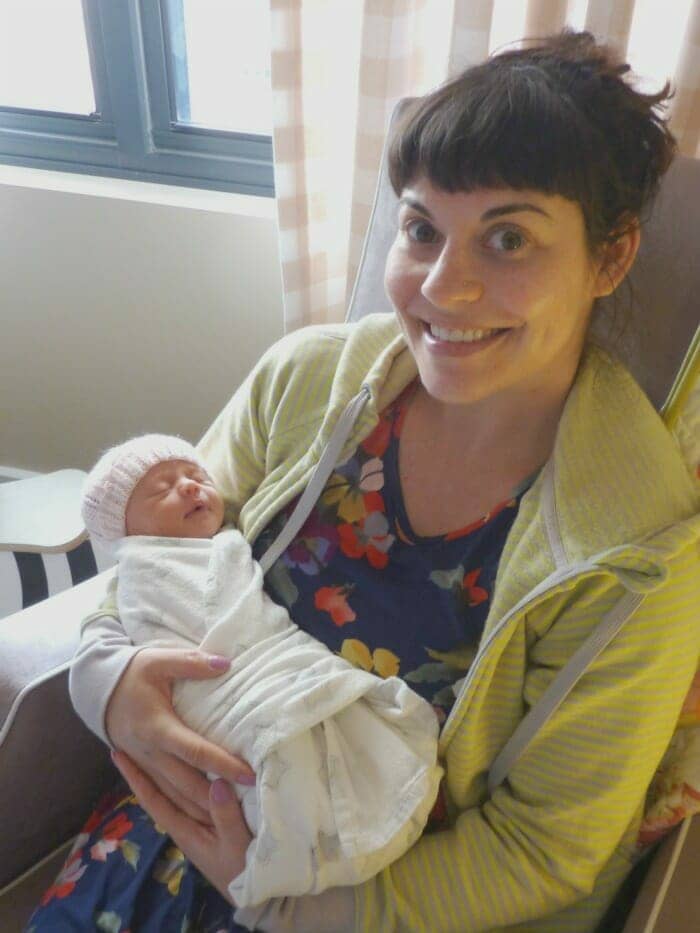
For someone who always wanted kids and who had low expectations for Parenthood, even I was crushed by the weight of it. Well-meaning strangers amplified my feelings of failure by telling me to enjoy every single moment (maybe I would have enjoyed it more with some sleep and regular showers). The old me was buried under expectations, martyrdom, judgment and guilt. Imagine if I were a woman previously ‘on the fence’ about having kids? Someone who expected the baby to light up my world? Regret could have easily followed.
I came across a controversial article on about Mothers who regret having children. A taboo topic yet I felt empathy for those mothers. The honesty and bravery of the piece surprised me and then again, it didn’t.
Modern motherhood sets us up for failure. The myth that children will magically give our life purpose. Few people speak up about the harsher realities of motherhood (I don’t say parenthood because I feel the expectations on women are far greater). We are supposed to fall in love with the child immediately (not everyone does), enjoy every single moment (only if you are insane), we must always put children first (no one can parent successfully with an empty cup). Oh yeah- and we must do it all in isolation because our villages are gone.
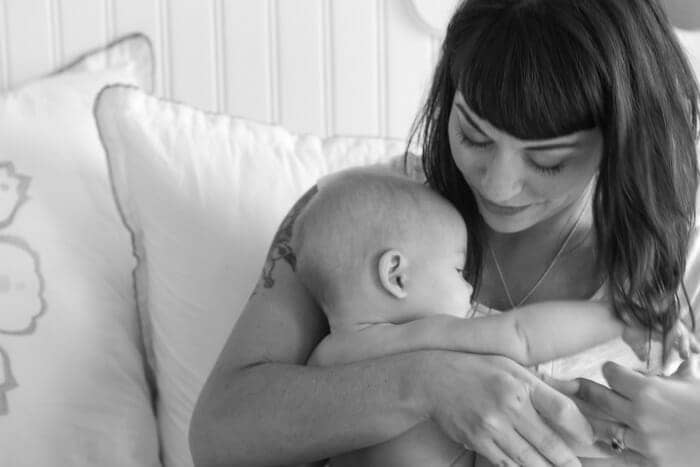
So while I personally don’t regret Motherhood, I can completely understand how some women would. I shared the article in on my Facebook page and insightful and honest discussion ensued (it could have gone in the opposite direction).
Sited in the original article is this one written in 2005. It’s written by a woman who publicly stated that she loves her husband more than her children. I remember seeing the author on Oprah, hearing the boos, watching the audience’s negative reactions. A young adult myself, it never occurred to me that my parents had lives outside of the home. A year later they would divorce as soon as my brother graduated from High School, a classic case of ‘staying together for the kids.’
Side Note: Don’t stay together for the kids! Show the kids how to be truly happy!
Having my daughter made me want to be a better person, much like with a love affair, because I wanted to be worthy of being her mother. Deep down I felt unhappy with myself. I desperately wanted to be the example of a fulfilled, confident, successful and satisfied woman but I was far from it and I’ll be damned if I was going to put that responsibility onto my little girl.
So maybe I differ from the honest Oprah guest in that it’s a constant struggle for me to PREVENT making my daughter the centre of my universe. To remember to save some energy for my relationship and for myself. After all, someday kids leave. And you're still there.
No matter what you see on social media, there is no perfect way to parent (and no perfect parents). I think it would be better to share our struggles and support one another more openly. Maybe that we could admit to ourselves and our children that life isn’t meant to be one, long highlight-reel. But rather a series of attempts, failures, resilience and forgiveness. I think those are good lessons for both parents and children.
Can you understand why some mothers have regrets?
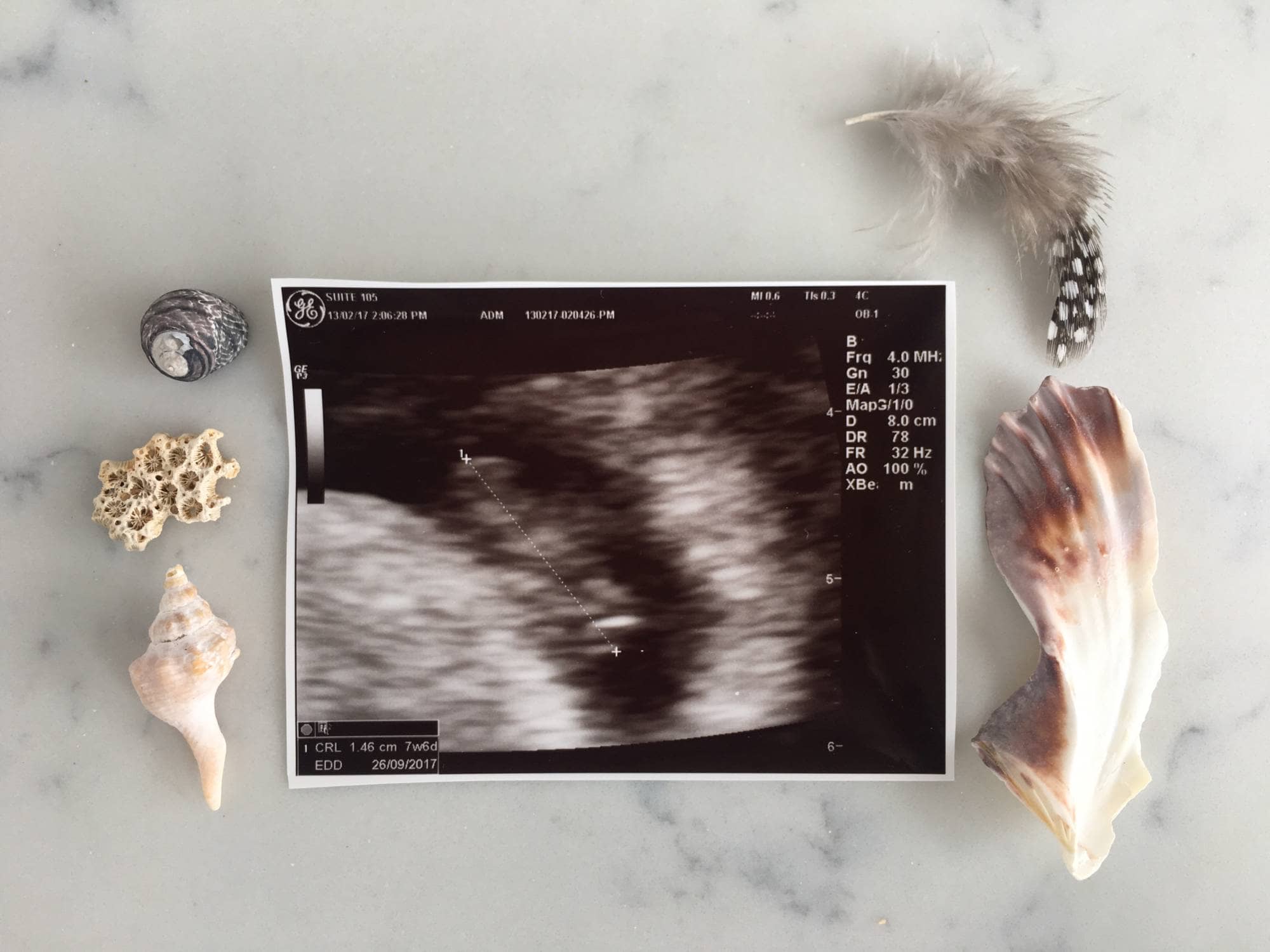
The 12-week rule is mainstream. Every day parents post joyful, clever, pregnancy announcements on social media...but only after the first trimester is done and dusted.
Questioning this socially-accepted timeline will usually garner a stock-standard reply: there is a higher risk of miscarriage within the first 12 weeks. This answer bothers me because it implies miscarriages should be kept secret too. What about women who prefer to have social support through such a difficult time?
Speaking of support, the first trimester is when some of the worst physical symptoms (like fatigue and morning sickness) present themselves. It's when women make diet and lifestyle changes which can lead to some serious fibbing if people notice (and they will). How many times can you claim food-poisoning or dodge a delicious Chardonnay?
My argument is that such a personal revelation should be left to the parents, not some societal standard- especially when people judge when you choose not to follow the guide. When we told friends about our first pregnancy at 8-10 weeks there were lots of big eyes, gasps, and comments like, "Wow, it's early!"
I genuinely want to understand the reasons why people adhere to the 12-week rule. This is what I've found after speaking to friends, my Obstetrician, and Google but if you have a different point of view- please leave a comment. I'd love to hear it.
1. Most miscarriages occur in the first trimester. The risk reduces to 0.5% at week nine (Source) so why don't we spill the beans at ten weeks if it's really about miscarriage risk?
My thoughts: A miscarriage occurs in one out of every 4 or 5 pregnancies (depending on what stats you read). Miscarriages can happen well after 12 weeks. Stillbirths happen. Is a pregnancy ever really ‘safe’? Of course not. So how long do we wait to celebrate or prepare?
2. The Pain of telling people about a miscarriage. Yes, it would royally suck 'un-telling' people about a pregnancy but isn’t pain part of the grieving process? Should we really expect women to grieve alone?
My thoughts: The realist in me says that open honest discussion around the frequency of miscarriage would lead to better expectation management in early pregnancy.
“Are we 'allowed' to have it qualify as a grief? Are we expected to suffer in silence if it's such a common experience?” Bee Rowlatt
3. Workplace Discrimination. It is illegal to fire a woman for being pregnant but it happens.
My thoughts: This is a societal problem. It should be addressed. Talking about it more might help.
4. Fear of the Unknown. Some women may experience an unplanned pregnancy and need to process the information slowly.
My thoughts: Understandable however will they magically feel ready to speak up at 12 weeks? Not necessarily. I say, let her speak when she's ready to.
5. Subsequent Miscarriage or infertility. This can be a long, emotional process for couples who have trouble conceiving. They may want to keep their journey private and that comes down to personal choice.
My thoughts: This is a personal and individual decision and your medical journey should be a private one if that's easier for you.
6. Superstition. In my opinion, this is the most intangible reason for secrecy because it implies the Mother is to blame.
My thoughts: A women can no sooner ‘jynx’ her pregnancy than she can control it.
Historically women would share news of their pregnancy during ‘the quickening’ which is when they first felt fetal movements and after several missed periods. This is usually after 20 weeks or the fourth month.
Ultrasounds were developed to detect chromosomal abnormalities in the 1970's and couples could decide whether or not to terminate based on the results (Source.) Perhaps this is the seed that started the whole 12-week-rule societal standard. So maybe waiting 12 weeks comes from the shame of not wanting to care for an 'imperfect' child.
Has it now morphed into something even bigger with more superstitions, taboos, and restrictions?
I used to silently judge people who shared the news 'too early.' As a woman, why would I default to that type of thinking rather than support? Seems rather passive of me not to question why.
So if I can't pinpoint the origins of the 12-week rule, maybe it's time to break it.
1. Society does not have the right to dictate something so personal. The decision to announce a pregnancy should be left to the parents based on their level of comfort and desire for privacy. There should be no societal standard, end of story.
“For those who want to let people know their news, we should join them in celebrating their news and offering our support not our judgment.” Steph, Writer
2. Miscarriage should not be shrouded in secrecy. For such a universal, human experience, we don’t share about it enough. Some parents may move on quickly, sure, but some will experience a lifetime of grief. We have rituals and protocol for death but none for miscarriage.
3. You won’t have to lie. Most women have to change their diet and lifestyle during pregnancy. I would hold a glass of wine and steadily pour it into my husband’s glass throughout the evening (he was drinking for two and I was eating for two.) Unless you enjoy secrets, we have the opportunity to replace secrecy with empathy.
“Staying quiet for 12 weeks while you grow a human being inside of you is nothing short of completely insane.” Wendy Zamora
4. We can support women. I have not suffered a miscarriage personally but I can relate to suffering from depression in silence. I tried my hardest to push through, cover up, act like everything was FINE. This reinforces the societal stigma and fear of the disease and I fear the same happens with miscarriage. Let's talk about it, above a whisper.
5. To have boundaries. Today we live in a culture of social media where many people share ‘too much information’ where personal boundaries are often stretched to the limit and beyond. The decision of when, where, and how a pregnancy is revealed should be left to the individuals. End of story.
6. To build a village. Whether you're having a difficult first trimester or suffer a miscarriage, it helps to speak to women who have been there, who can offer advice and support. Having a solid network in place will better prepare you for new parenthood when it happens.
"Let us destroy the ‘perfect pregnancy’ myth. Are we ‘saving’ women from sharing the news of a miscarriage or are we saving our culture from the knowledge that pregnancy can end unexpectedly, that it can get ugly, that it’s not all about cute bumps and a glow."
Let us destroy the ‘perfect pregnancy’ myth. Are we ‘saving’ women from sharing the news of a miscarriage or are we saving our culture from the knowledge that pregnancy can end unexpectedly, that it can get ugly, that it’s not all about cute bumps and a glow.
Pregnancy is not 'polite' and women should not be burdened with making it appear to be.
Writing this today, I am seven weeks into my second pregnancy (probably 8 by the time I publish this). Part of me wanted to share immediately (I found out at exactly four weeks) but another part of me wanted to keep it close for a while because I share a lot of myself online.
I am telling you our news because you are my people. We connect through stories and your support means the world to me. If this pregnancy does not result in a healthy baby, I will share that too- in my own time. Meanwhile, we will celebrate this bean because he or she means so much to our family already.
Editors note: I've gotten some feedback from women who choose to wait 20+ weeks to share their news. To them, this post probably seems like I'm more strongly advocating for announcing early but only when that helps the woman feel more supported. Wait if you want to wait, tell if you want to tell. Let's embrace the news no matter what. And let's better support women who experience miscarriage.
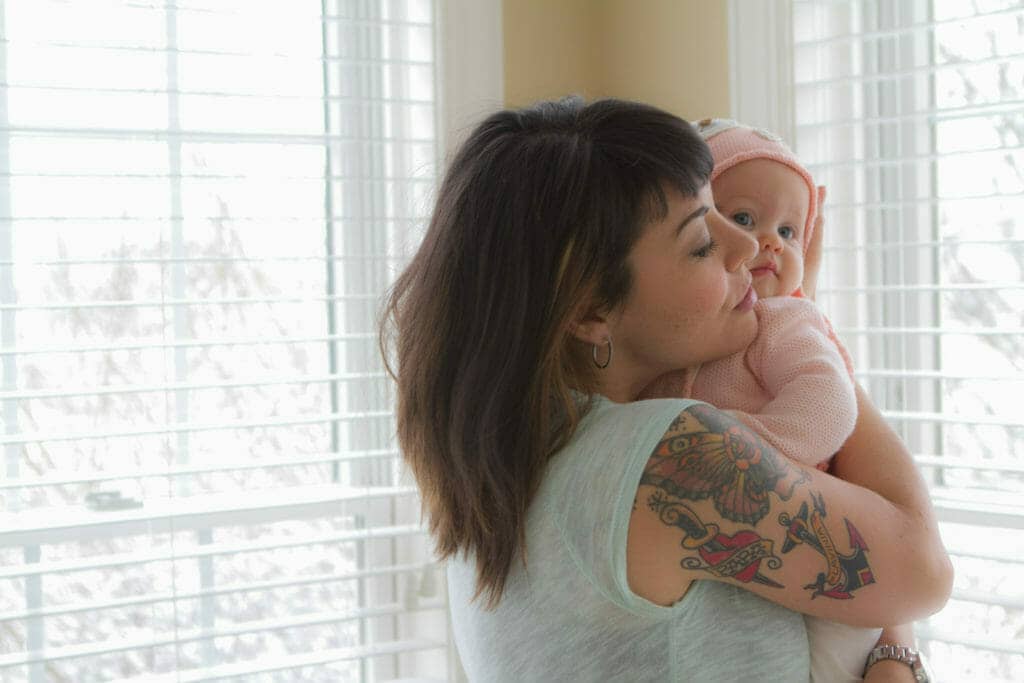
Brought to you by Bupa
Before becoming a mother, I thought postnatal depression looked like Brooke Shields on Oprah taking about how she didn’t want to hold her baby. I remember watching that episode and thinking, ‘How sad.’ The teenage me had not a single, flippin’ clue.
What I know now is that Postnatal depression is tricky and it looks different for everybody.
Fast forward from teen me to my personal postnatal nightmare. I obsessed over my daughter to the point where I imagined sending her into therapy for my neediness. It wasn’t all negative, there were moments of love and joy, so I couldn’t possibly have postnatal depression, could I?
In the background constant negative thoughts told me I was failing at Motherhood. That my child deserved someone who knew what to do, someone who wasn’t so miserable, someone who could get out of pyjamas and go for walks in the sunshine. My daughter deserved a Mother who liked herself.
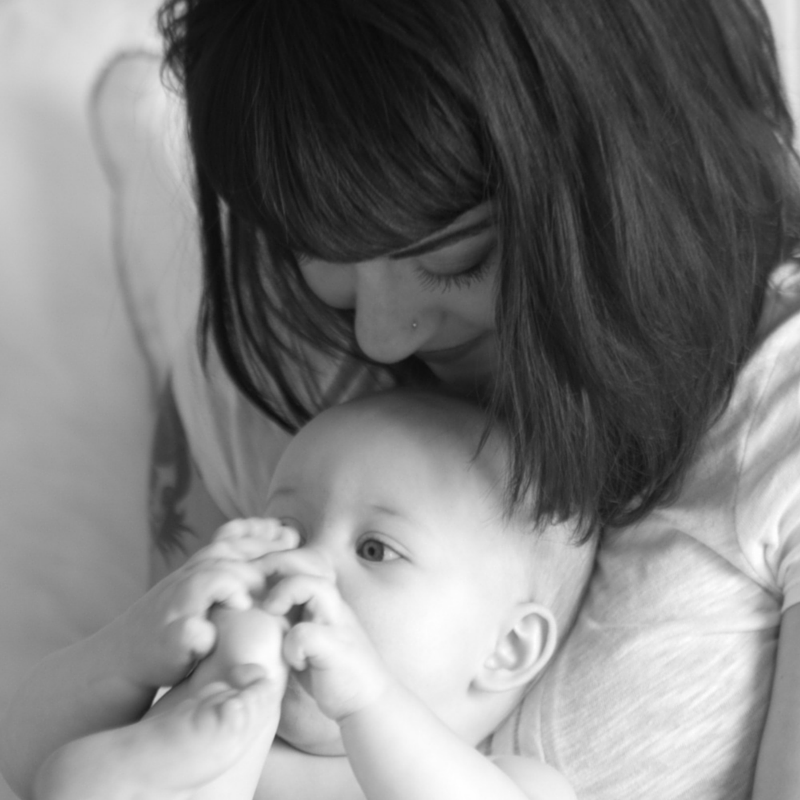
As for the bonding thing? Let’s just make it irrelevant. I have plenty of friends without PND who didn’t bond with their babies immediately. I mean, those majestic pink newbies are technically total strangers so it’s understandable.
My personality is the only reason I bonded with my daughter. One look at my past and you’ll see a string of impulse puppy purchases and deadbeat boyfriends; “I know he doesn’t have a job and treats me bad but I looooooooove him.” (Don’t worry, I’ve learned my lesson.) Bonding schmonding, it was not an indication of my mental health.
The backbone of my recovery was support. It can come from a variety of different places, family, friends, babysitters, online communities and tools. Bupa has developed some new resources that can also help.
In partnership with industry leading researchers, specialists and Mums, mummatters can assess your emotional wellbeing and provide you with tips and resources. It even provides regular check-ins to see how you’re going. It’s personalised too- so you will get information relevant to your unique situation.
There’s something so valuable about getting a third party perspective on your emotional health. My husband wanted to suggest getting help but he had to walk on eggshells around my mood swings and didn’t want to make me feel any worse.
Another thing I love about this tool is that it’s confidential. I will never forget standing in my driveway (for privacy) and calling my MCH nurse. Our connection was crackly and she asked me to repeat myself until I practically shouted; “I think I’m depressed and I need help!” (In case any of my neighbours were wondering.)
Remember, PND can feel more like a rollercoaster of emotions than typical depression. There are high moments, which is why I think it’s so confusing to self-diagnose. You might not want to pick up your baby like Brooke Shields or you might never want to put her down. The only thing that matters is that you treat yourself with the same tender care that you would give your own child.
When you are ready for a hand Mama, it’s out there. You do not have to go through this alone.
If you or someone you love is suffering from Postnatal Depression or Anxiety please seek help.

This story is brought to you by Bupa.
Three weeks after my daughter’s birth is the first time someone asked me when I would have a second child. I snorted tea through my nose. Are you kidding? I could barely sit, had mastitis, felt utterly exhausted and that was only the physical pain.
Postnatal depression seeps into everyday life like an oil spill. Sometimes a new wave brings fresh blackness, coating every crevice. The clean-up feels immense and impossible. Once my physical parts healed I was left with a slippery head and a drenched heart.
I dragged myself to counselling. Entitled to several sessions with my Bupa membership I continued with Medicare and still go for ‘top-ups’ when I need to talk.
Learning to deal with new and unhealthy thought patterns proved difficult but worthwhile. Life started settling into a new normal and when my daughter turned 14 months old I finally started to feel emotionally well again. And of course the question kept swirling, with more frequency. “When are you having another baby?” Ex-squeeze me? I have barely survived the first one!
Second babies popped out all around me and rather than inspiring cluckiness I cringed watching friends juggle two babies. Contemplating the logistics alone sent me into a panic. I get it, my generation typically waits longer to have children so there is this pressure to crank them out in close succession.

I’m not sure there is an ‘ideal’ time to space children and everyone has an opinion. Personally I couldn’t imagine a worse idea than having babies close together. Double the nappies, different sleep schedules, heavy-handed toddlers….Abandon ship!
Before arguing with me, let’s go deeper. More than my lets-call-them ‘environmental’ excuses for waiting, fear is the true culprit lurking beneath the surface. Simply writing about my experience with PND is painful enough but to risk going through it again is unnerving.
Of course I could have just one child however I always wanted two. I will not let PND decide that for us. My brother is such an important person in my life. We are four years apart and clashed growing up but we adore each other now. I desperately want my daughter to have that. And look, she might need a kidney someday right?
Knowing it’s important to keep an eye on my mental health, I was seriously pumped to find out Bupa have developed a mobile tool called mummatters, which helps to support mothers through their pregnancy and beyond. If I had a tool like this three years ago, I KNOW I would not have waited as long as I did to seek help. Hindsight is a benefit now, but if more Mums use these helpful resources, our families will be the main benefactors of our emotional wellbeing.
Statistically I know I am prone to having PND again but now that I’m on the other side, even if I need to retrace those painstaking steps I took before, I will make it back here.
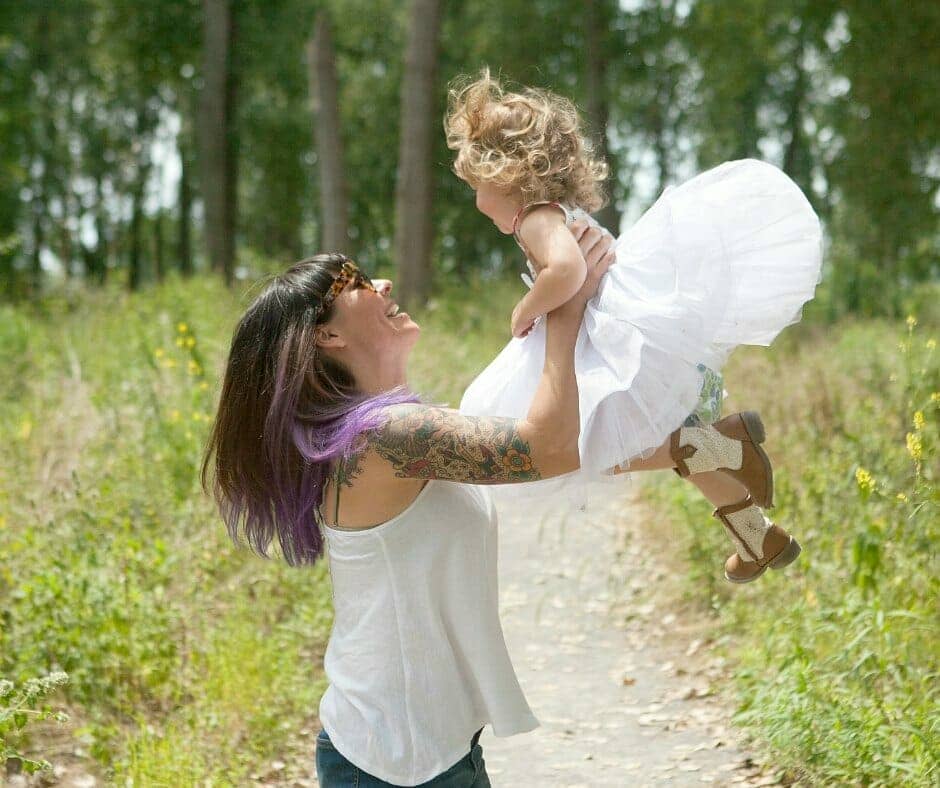
My GP once told me; “Depression is not a casserole disease.” As in, people don’t necessarily rally around you like they would with a physical illness. Maybe it’s because we don’t talk about this enough.
Mental illness manifests itself in as many different ways as there are folds in our crinkly brains. Each treatment can be personalised for each individual. I’m going to share my approach so you can get an idea of what worked for me, but everyone will have slightly different needs.
The first thing I did was find a therapist. I called my maternal and child health nurse to ask for help and for a recommendation. It took me five months to make that phone call. I blame the PND emotional rollercoaster, the occasional good day gave me false hope that things would get better on their own.
I went to counselling. Through my Bupa private health fund I had access to the Bupa Parent and Baby Wellbeing Program. I had several sessions, my choice of group or one-on-one, with no out of pocket costs. It is essential to maintain regular check-ins with a health professional to track your progress. Therapy was the cornerstone in my healing- no way around this.
I found an occasional care centre, pushed through the guilt and chucked my 8 month old in there for 5 hours, once a week. Sometimes I used the free-time productively and other times I would sleep. Either way I started to recognise the necessity of ‘me time.’ If you can’t spare the child-care expense see if you can swap babysitting with a friend or relative.
In my sessions we started exploring the topic of identity. What it meant and how to rediscover a new identity that included ‘Mother.’ I started making time for some of the things I used to enjoy like yoga, painting and writing. I cut and dyed my hair and repurposed my wardrobe to fit my new lifestyle, sometimes seemingly superficial things can help anchor how we see ourselves. You don’t have to spend money to change your look. Go through what you already have, get rid of what you don’t need, or trade with a friend.
When my daughter was nine months old I joined a local gym with child minding. Moving my body helped with healing my mind and relieving stress. Working out made me want to eat better and it’s amazing how much being physically active can aid in emotional health. Not a fan of the gym? Get out walking with that pram.
I went to every single Mums group catch up and even offered to organise events. These women were on the front lines with me and made me feel less alone. I sought out online communities to ask advice and share my frustrations. Friendships were forged that would never have been possible. Find your corner of the world or Internet.
I started writing about postnatal depression on my blog. At the time I didn’t share my writing with many but one day I decided to put it out there on social media. At first I felt like I had overshared but when the responses flooded in and I heard the chorus of ‘me too,’ this motivated me to keep revealing the truth.
I started to embrace my flaws as a parent and a person instead of loathing them. I decided to admit my mistakes, even to my baby daughter, so I can teach her it’s okay to be human. I stopped feeling guilty about my depression because that is useless as feeling guilty for having brown eyes.
I stopped comparing myself to other parents. I stopped judging others, and myself. I think everyone so badly wants to parent the ‘right way’ that if someone else is doing it differently it means we are ‘wrong.’ Every family needs to do what works best for them. All that matters is that we do the best we can by our children.
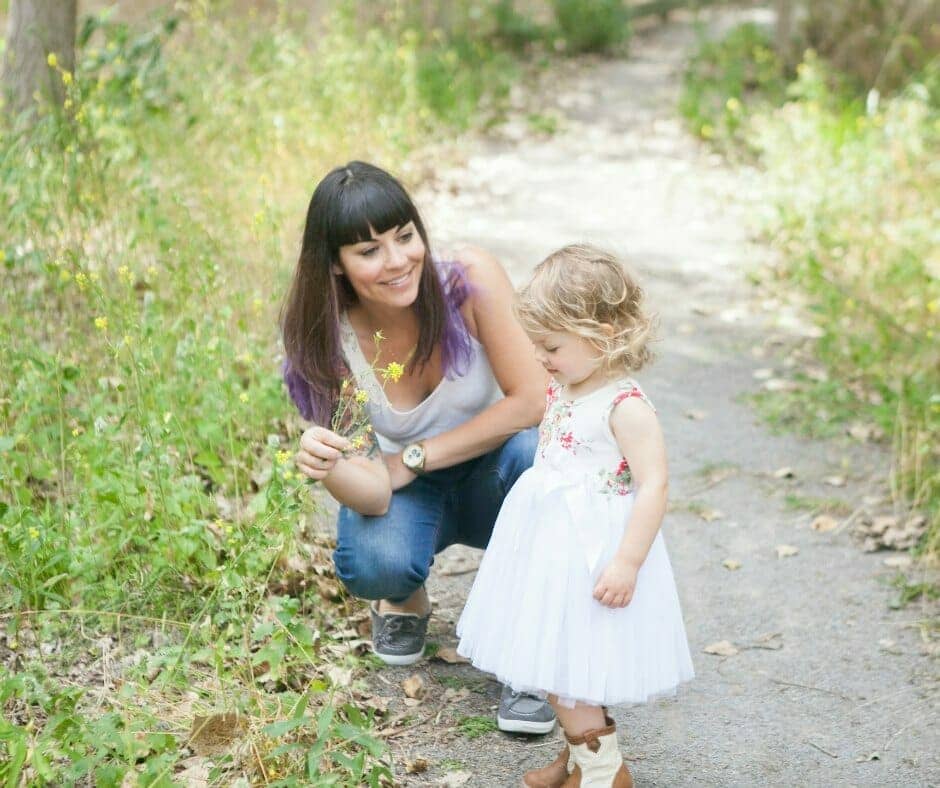
You can see how I fought PND from many different angles including mental, physical and environmental. Every tactic I used empowered me to heal myself and to get well. New resources are being developed all the time so experiment, try different approaches like Bupa’s mummatters, a tool built with industry experts to provide a ‘check in’ for mums before and after birth.
If I could add a number nine to my list it would be prevention. Given the belated gift of hindsight I would definitely encourage new and expecting mothers to have support systems in place during and even before pregnancy. If I had help waiting in the wings before I needed it I’m sure my emotional health would have been back on track much sooner. I would have loved a tool like mummatters during my first pregnancy and you better believe I’ll have it for the next one.
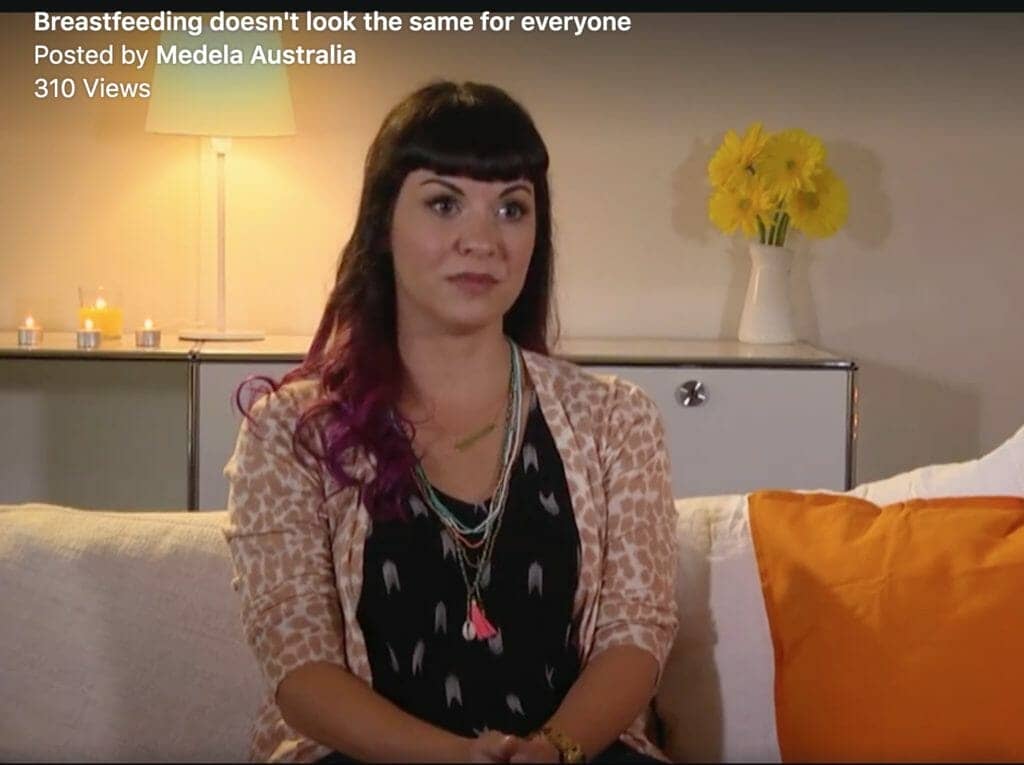
Literally sucks. Get it? (I know I know, I couldn’t help myself).
I’m in the lucky position of breastfeeding being a distant memory. It’s no secret I didn’t like it. Aside from the physical suckage of breastfeeding, it can be mentally sucky as well. At least it was for me.
Check out this video of a bunch of us Mums speaking about the experience. I was on the more negative end of the scale but it’s not as bad for everyone!
Breastfeeding doesn't look the same for everyoneMedela Australia recently conducted a survey with 4000 Australian Mums to discover attitudes towards experience with breastfeeding and sourcing parenting advice. Results reveal many women put pressure on themselves to breastfeed because of health benefits breastfeeding provides, yet most go on to experience associated challenges. The MyMedela app, is a personal digital companion providing practical advice, tips and tricks from experts on pregnancy, birth and breastfeeding, whilst post birth, acts as an efficient tracking tool to monitor babies progress in key areas such as breastfeeding to suit mums’ needs today.
What breastfeeding challenges have you overcome?Posted by Medela Australia on Thursday, July 7, 2016
Not only is it time consuming, painful and restrictive but I felt like a prisoner. Breastfeeding affected what I wore, what time I went out, when I pumped. It was a constant battle to build up a supply in the freezer.
I had mastitis, sore nipples, an infected duct. Yet I persisted. For seven months. Why did I do it for so long if I hated it you might ask (other than sheer stubbornness or masochism)?
Because I love science.
(Note to self. Probably don’t use the word masochism in a post about breastfeeding.)
Breastfeeding is an incredible biological process that we don’t even know everything about yet. Our bodies give babies exactly what they need. Milk changes according to the baby’s needs- how fascinating! For reals the little science we have about breastfeeding is majorly impressive. Our. bodies. make. food. Sign me up… but then let me quit when I want to.
Some people can’t do it, won’t do it and others try and fail (not at motherhood just at boob feeding). It takes all kinds of Mums to raise all kinds of kids and I salute and support all of you.
Breastfeeding along with healthy eating, taking vitamins, exercise are just a few of the difficult things in life that promote better health in my opinion.
When I weaned my daughter it was a mutual parting of ways. I was so relieved yet there were moments when I waxed nostalgic that I could never go back to nursing. It seemed so final.
I’m proud of myself for sticking to it as long as I did. It was hard. No one really tells you that. You're welcome.
Things that helped me were Google. Apps. Diagrams. I googled the shit out of proper latch, different holds, all sorts of techniques until I figured out what worked for us. Thank goodness for 24/7 Internet because that knowledge is just not passed down properly anymore.
If you’re interested in further reading check out the results of this Medela Australia survey of 4,000 Australian women.
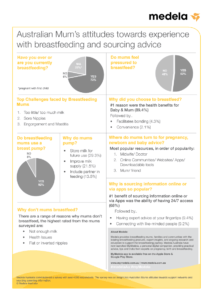
To watch another part of this video about motherhood, check out this post with video click here. Bonus you totes get to see me cry.
How did you feel about breastfeeding?
Kangaroo Spotting is an artistic identity creator.
Visual Art & Copywriting Services
Based in Melbourne, VIC Australia, serving clients internationally.